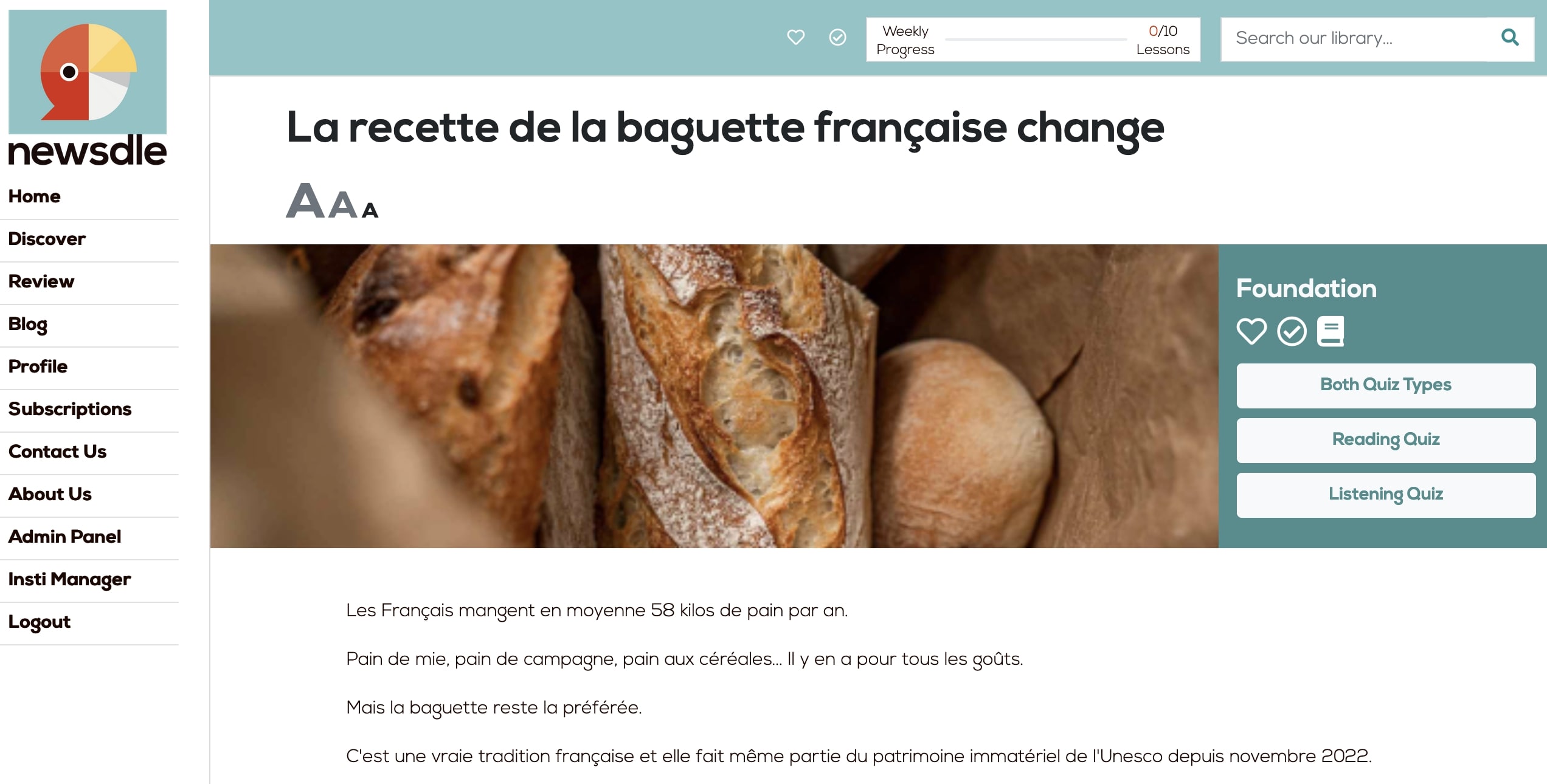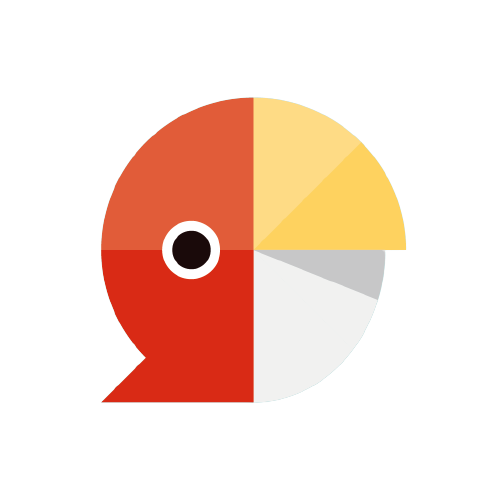How Long Does it Take to Learn French Fluently?
As indicated by research conducted by Cambridge University Press & Assessment, approximately 1,200 hours of dedicated study time are necessary for an English native speaker to reach the C2 level of proficiency in French. However, the journey to language mastery is influenced by many other factors that impact the timeline required to reach your desired level of competence in French language.
Whether you're a language enthusiast aiming to add another skill to your repertoire or someone with specific goals like traveling, studying, or working in a French-speaking environment, this article will provide you with valuable insights, practical tips, and a deep appreciation for the art of language learning. Join us as we delve into the factors that influence the time it takes to become fluent in French, discover effective learning strategies, and uncover joy that accompanies the journey of mastering a new language. Let's dive in!
Definition of fluency in French
Measuring fluency, whether in one's native language (L1) or a second language (L2), is notoriously difficult. Although there is no universally adopted test of fluency, tests such as the Language Experience and Proficiency Questionnaire (LEAP-Q) have been developed to try to standardise the definition of fluency.
An informal survey conducted among first-year undergraduate students enrolled in a language and society course in the US yielded an array of definitions for "fluency". Responses ranged from notions like "seamless and rapid speech" to "confidently speaking without hesitations”, "ability to humorously engage” and "effortless conversation”.
Upon delving into the research, a multifaceted understanding of fluency emerges. Despite a consensus on certain facets of fluent language use, significant variations in both the expression and interpretation of fluency are evident. Fluency operates as a term that encapsulates a spectrum of meanings, displaying a degree of flexibility.
For the purposes of this article, we will take the definition of fluency to be when you can speak about, listen to and read the vast majority of what you would need for everyday life in the target language.
How long does it take to learn French fluently for native English speakers?
The classification of languages by the US Foreign Service Institute (FSI) is organised into four tiers of varying difficulty levels for native English speakers aiming to learn them. Among these tiers, Group 1 stands out as the most manageable and includes French, German, Indonesian, Italian, Portuguese, Romanian, Spanish, and Swahili. According to FSI studies, achieving a foundational level of fluency in all Group 1 languages typically requires approximately 480 hours of dedicated study.
Approximately one-third of the entire English vocabulary finds its origins in French. This linguistic connection offers a significant advantage to English speakers embarking on learning French, as they already possess an extensive bank of familiar French words.
Factors affecting the time to learn French fluently
There are many factors that affect the time it takes to learn French fluently, such as…
- Age: The impact of age on mastering French is topic of interest. While there's no exact age threshold, extensive research found that children exhibit proficiency in acquiring a second language until around the age of 18. This is approximately a decade beyond previous estimations. Although learning new vocabulary remains feasible whatever your age, mastering native-like grammar and pronunciation may be more challenging for people as they grow older.
- Native language: Individuals who are native English speakers tend to find learning French comparatively more straightforward than those who come from different linguistic backgrounds.
- Prior educational attainment: Numerous studies have highlighted the correlation between proficiency in one's first language and the ability to read and comprehend a second language.
- Language immersion: Those who embrace immersion by spending over 90% of their time in a French-speaking environment, tend to exhibit more significant fluency than those who rely solely on classroom study.
- Targeted proficiency level: At various stages, the commitment required for fluency differs. Basic fluency typically necessitates approximately 480 hours for beginners, while an intermediate level requires around 800 hours. Advancing to a higher level of fluency, categorized as advanced, generally involves dedicating roughly 1,200 hours.
- Time investment: Consistent daily practice for at least 20 to 30 minutes is essential. Activities like listening to podcasts, watching YouTube videos in fluent French during commutes, or taking online courses contribute to steady progress. Adult learners who are motivated generally need between 100 and 200 hours of guided learning to transition from one CEFR level to the next.
- Enjoyment: Reaching a point where language learning becomes enjoyable is pivotal. The ability to watch movies or read books in French, even if challenging, and making connections with speakers of the language can make the learning journey feel rewarding, even when fluency goals are still distant.
- Clearly defined learning objectives: Setting explicit expectations for your language learning journey is essential to measure progress and maintain motivation.
How long should you spend learning French each day to become fluent?
Although the path to French fluency might appear to demand a significant time investment, experts uphold the idea that significant progress can be attained through as little as one hour of study per day. Here at Newsdle, we firmly advocate for the effectiveness of the "little and often" approach to studying. The world of online language learning improves language learning, offering diverse and captivating avenues to improve and diversify your routine.
Comparing language learning speeds: French vs. other languages
Group 1 languages such as French offer a relatively smoother learning curve, demanding approximately 480 hours to attain a basic level of fluency. For more advanced learners, it takes approximately 1,200 hours of dedicated study time are necessary for an English native speaker to reach the C2 level of proficiency in French.
Shifting to Group 2 languages like Greek and Hindi, the curve challenges further, necessitating around 720 hours of dedicated learning to achieve a basic level of fluency. As we advance to Group 3 languages, including Czech and Finnish, and subsequently to Group 4 languages such as Chinese and Japanese, the investment of time further increases.
Accelerating your French language learning journey - learn French online
Embarking on a journey to learn French has never been more accessible, thanks to the abundance of online resources tailored to cater to a variety of learning preferences. Discover a world of possibilities as you harness the power of digital tools to accelerate your language learning progress.
At Newsdle, we're committed to equipping you with the best resources to help you master French in a way that suits your individual style. Explore our blog posts dedicated to the best resources to learning to read in French and the best French learning apps for self-motivated study. Level-up your French today!

Newsdle - Graded News to Learn French
Overcoming challenges and plateaus in learning French
Learning French is an exciting adventure, but it's natural to encounter challenges and plateaus along the way. Frustration may arise, progress might seem slow, and motivation could waver. However, with the right strategies and mindset, you can overcome these hurdles and keep your journey vibrant and rewarding. Here are some key insights to guide you:
- Set realistic goals: It's essential to establish clear and achievable objectives for your French learning journey. Break down your goals into smaller, manageable milestones. This approach not only enhances your sense of accomplishment but also keeps you motivated as you witness tangible progress.
- Practice daily and build discipline: Consistency is the key to success in language learning. Commit to practicing French every day, even if it's just for a short amount of time. Building this discipline helps reinforce your skills.
- Make it fun: Injecting enjoyment into your learning process is crucial. Seek out engaging resources, such as movies, music, podcasts, and games in French. Incorporate elements of your hobbies and interests into your learning routine to keep the experience enjoyable and captivating.
- Switch up your study methods: Variety is a powerful tool to combat language learning plateaus. Experiment with different learning techniques, such as speaking exercises, writing prompts, language exchange, or even exploring French cuisine. Diversifying your approach not only keeps things fresh but also strengthens different aspects of language acquisition.
- Make friends: Connecting with fellow language learners or native French speakers can be incredibly beneficial. Engaging in conversations, whether online or in person, fosters real-world language use and provides valuable insights into cultural nuances.
- Balancing fluency with perfectionism: Striking the right balance between striving for fluency and avoiding perfectionism is crucial. Understand that language learning is a journey, and perfection isn't the immediate goal. Recognise that making mistakes is a natural part of language learning and a steppingstone to improvement.

Making friends is a great way to learn languages and travel!
Cultural awareness and French fluency
In the realm of French language learning, the benefits extend far beyond linguistic proficiency. Learning a language such as French is akin to embarking on a transformative journey of cultural understanding and adaptability. This voyage not only enriches your personal experiences but also significantly broadens your professional horizons.
As well as greater cultural understanding and awareness, being fluent in another language showcases links to intelligence, memory aptitude, and higher academic accomplishment. It also improves the brain's efficiency in information processing, potentially mitigating age-related cognitive decline.
How to maintain French fluency
Here are our 8 top tips for maintaining fluency in French:
- Switch your device language: Build French language into your daily life by changing the language settings on your tech devices. This immersive technique keeps your mind engaged with the language, allowing you to effortlessly encounter and learn new vocabulary.
- Build connections: Forge friendships with French speakers or learners. Engaging in conversations not only sustains your conversational skills but also fosters genuine connections that enrich your language learning journey.
- Embrace accountability: Set language goals and enlist a language partner or tutor to hold you accountable. Regular check-ins and shared progress ensure you remain dedicated to your ongoing learning efforts.
- Leverage social media: Follow French-speaking influencers, news outlets, and language enthusiasts on social media platforms. Engaging with daily content introduces you to colloquial expressions, cultural insights, and current events.
- Stay current with news: Regularly read news articles or watch news segments in French. This practice sharpens your language comprehension while keeping you informed about global happenings. With Newsdle, you can read graded news in French daily, at any level of proficiency!
- Tune into music: Immerse yourself in French music spanning different genres. Songs offer exposure to varied vocabulary, pronunciation, and cultural themes, all while making the process enjoyable.
- Teach and share: Teaching someone else what you've learned reinforces your own understanding. Engage in language exchange with fellow learners or introduce French to friends and family members.
- Dive into visual content: Watch French TV shows, movies, and documentaries. Visual media exposes you to diverse accents, dialogues, and cultural nuances while enhancing your listening skills.
Conclusion
Embarking on the journey to French fluency requires dedication. As you integrate French language study into your daily routine, you're not just mastering language, but also immersing yourself in culture, understanding, and meaningful connections. We hope that Newsdle will be an invaluable companion throughout your French language journey!
Author:

Sean McGibney speaking to students at Beths Grammar School about his experience of learning Chinese, living in China and founding Newsdle and The Chairman’s Bao.
Sean studied Chinese and Spanish at University of Leeds and founded The Chairman’s Bao alongside Tom Reid in his final year of study in 2015. Current Managing Director of The Chairman’s Bao, he has overseen the company’s growth from university bedroom concept to an international force in the EdTech industry with over 200,000 individual users and over 400 global partner institutions. Sean also launched Newsdle alongside Tom Reid and Oliver Leach in 2021, for students and teachers of Spanish and French. In his spare time, Sean is still a keen language learner and runner. He also sits on the Board of charity Leeds Irish Health and Homes in the UK.
Sources:
- Cambridge University Press & Assessment
- Foreign Service Institute
- United States Department of State
- BBC
- Scientific American
- Middlebury
- International Center for Language Studies
- University of Memphis


